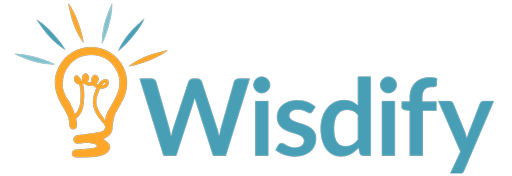Expanding and enhancing your education is vital after college. Industries are evolving at incredible speeds – and so are the expertise required to succeed within them. In order to stay relevant, you must be able to adapt to new opportunities by continuously developing your knowledge and skill sets.
Taking charge of your own development
Whether you are looking for a job, pursuing a promotion or striving to be successful within your current position, you need to take charge of your professional development. Doing so will improve your qualifications and demonstrate your initiative and adaptability.
How do you empower yourself with the skills and knowledge you’ll need to thrive throughout your career? You must continuously identify the skills you need, evaluate whether you have them, take steps to build or strengthen them, and monitor your progress.
Identify
First, identify the types of hard and soft skills that will be most valuable to you. What type of work do you want to do? What type of job do you want? What skills do you need to get achieve those goals? As you think about these questions, use the following tips to identify the skills you’ll need to achieve those goals.
- What skills do you need to achieve your professional goals? If you want a promotion, what skills do you need? If you are looking to expand your responsibilities, what skills do you need?
- Look at peers and mentors that you admire and identify what sets them apart. What qualities or expertise do they have that makes them excel in their roles? If it would be helpful, ask them if they would be willing to have a conversation about your professional development.
- Review job descriptions to see what skills employers value in your current or desired future role. Are employers looking for any new qualifications from candidates that weren’t required when you were hired?
- Stay current in your industry to be aware of any events and trends that will shape what skills will be important (such as an emerging technology).
Evaluate
Next, evaluate how you measure up against the skills you want to have and identify any competency gaps. Map out which of your skills are strong, outdated, or weak. Look at your performance reviews, past projects and accomplishments, or notes you have taken about your work to help you self-evaluate.
Also ask your manager, mentor, colleagues or other network contacts to give you an honest evaluation of what skills you have and which you need to develop or improve upon.
Build and strengthen
Once you know what skills and knowledge you need, determine how you can best develop them. Below are a few ways you can build your expertise.
- Take a course: Your needs may vary from taking a specific, targeted online course to enrolling in a graduate school program. Look at the online courses we offer at Wisdify. Also see what courses are offered at local colleges and adult education programs. Most employers will reimburse you for your courses so make sure you ask them.
- Search for in–house training: Check with your Human Resources center to see if they offer any training that would meet your needs. Your manager or another more senior colleague may also be willing to develop training material and sessions for you.
- Speak with your manager and co–workers about the skills you want to develop: In addition to offering ideas about how to develop specific skills, your colleagues may be able to provide you with real-world opportunities to develop them. For example, if you tell your manager you want experience with giving presentations and building financial models, he or she can have you present at your next team meeting and staff you on the next project that involves financial models. Effective managers will want to support your development efforts and will appreciate the initiative you have taken.
- Ask for work shadowing and coaching opportunities: You may have a colleague who is willing to coach you or let you shadow their work. Your manager may be able to direct you to people who would be a good fit for what you want to learn.
- Set up discussions with your mentors and network contacts: Catch up with your mentor (see “How to find and cultivate a mentor”) and other contacts. Discuss industry news and the expertise you want to develop so that you can learn from each other. Ask questions and check if they have any resource suggestions for you.
- Volunteer: This can include volunteering to take on responsibilities or projects at work that will develop the skills you need. It can also be doing work at volunteer organizations that strengthen your skills, such as public speaking or managing a database.
- Join professional associations: Professional societies and organizations have many resources for career growth, such as webinars, conferences and courses. They also provide terrific networking opportunities. There is sometimes a membership fee, but that fee is often discounted if you are still in school or have recently graduated.
- Research your industry: Industry expertise is always important to have. Keep up-to-date with trends and news in your industry by reading articles, attending events, subscribing to newsletters, watching podcasts, and following industry experts on social media. This knowledge is developed over time, so set small goals for yourself (such as reading an article before work daily).
Monitor progress and repeat
Record what skills you are working on and the progress you have made with them – such as any certifications, accomplishments, courses, projects or other actions completed. Documenting your personal development will help you maintain your momentum and give you a record of what skills you have developed and how for future use.
Maintaining skills and building new ones is an ongoing process – and doesn’t stop once you get a new job or promotion. Establish times to measure your progress and reassess your goals.



